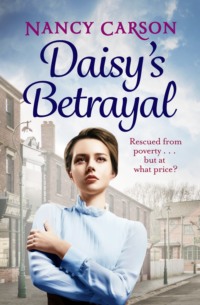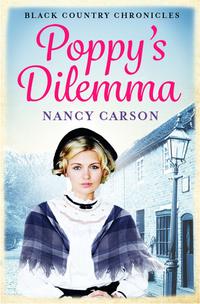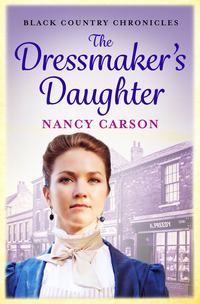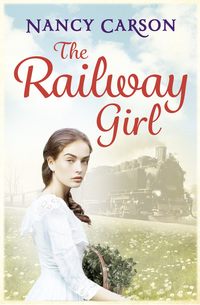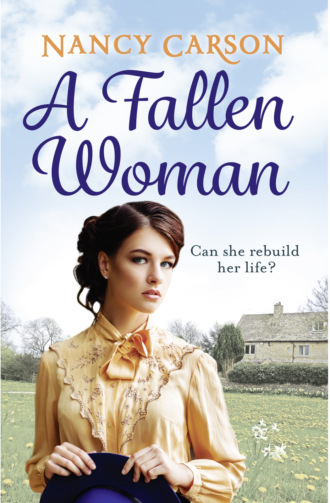
Полная версия
A Fallen Woman
For the record, the old man had been one of three illegitimate children, born in 1831 and raised in the area aptly known as Lye Waste, east of Stourbridge. He knew of nothing other than the absolute squalor he was born into, but from the age of three he had learned from his unmarried parents how to make nails. When his mother and father died of consumption, he and his two sisters ended up in the care of the workhouse. While they were being unceremoniously carted thence, he looked about him and noticed the way other people lived; he saw fine houses, neatly tended gardens, and other children at play. This indelible memory of a superior world was the stimulus the intelligent Benjamin Prentiss Sampson needed to better himself.
His two sisters died of consumption in the tender care of the workhouse, but Benjamin contrived to escape it, and he thrived. He saved what money he earned and, in 1856, had enough to start his own small business making fenders and hearth ware. In 1862, having shed the shackles of poverty and gained the respect of the business classes, he met and married a respectable girl and found time to father a son, Benjamin Augustus.
Old Benjamin gladly paid for the lad’s schooling, another privilege that money could buy, and nurtured high hopes for him. Education ensured that the lad spoke more correctly than the father, distancing him from the likes of the workhouse inmates and his employed workers. Ultimately, there was something about the son that the father admired and even envied; his demeanour, his confidence, the undeniable charm of which he was capable. If expensive schooling had taught him little else, it taught him the benefits of fine manners – when, how and whom to beguile; social tools which make it easier to get what you want.
When he left school he joined the prosperous Sampson firm to learn the business. Young Benjamin, however, could muster enthusiasm for little except cricket, his first love. If he could have spent his life playing cricket he would have happily done so.
It was cricket that eventually brought Aurelia Osborne to his attention. She was the older of two daughters of Murdoch Osborne, a well-known local butcher, womaniser, and a key member of the local Amateur Dramatics. For all his dubious reputation, Murdoch had nobly insisted his daughters received a proper education. It had endowed Aurelia with confidence, cordiality, grace, and an eloquence that surpassed Benjamin’s; so the charmer was also charmed.
Because of her innate politeness when they first met, she seemed amenable to his attentions, even flattered, willing to talk about him. He was encouraged. Eventually, after several weeks of insistent love notes, posies of flowers and packages of delicious chocolates swathed in ribbons, she agreed to meet him – alone. A few more short weeks saw the departure of Clarence Froggatt from her life. Soon after, Aurelia’s mother passed away, having lived a life of abject disillusionment and unhappiness, due to the reckless and feckless extramarital dalliances of her husband, Murdoch, which included an affair with her mother’s own sister.
Hence, Aurelia despised her father.
The word ‘marriage’ soon entered Benjamin and Aurelia’s vocabularies. He was desperate to get Aurelia into his bed, and she was desperate to quit her father’s dominion. So they swiftly arranged a wedding. Every day and every night thereafter would be a honeymoon – or so they both envisaged.
Within a few months it was obvious the marriage was not working. Aurelia fell pregnant, however. Her expanding belly, subsequent lack of interest in the normal bedtime activities of young couples and confinement disadvantaged him for too long. The introduction of a pert young nanny into the household was a tempting distraction. She was not as striking as Aurelia, but was pretty, petite and alluring; in all, a dangerous attraction. And the more dangerous the attraction the more reckless the chase, and, ultimately, the more exhilarating the consummation.
The nanny was a living, breathing young woman who tantalised him with her youthful figure and cheeky smile. He would brush past her, catch the scent of her perfume as it drifted to him, and she would turn her head and smile provocatively with her large expressive eyes, at exactly the same time that he turned to look at her. She recognised his interest and played on it. They schemed to be together and he would engineer any opportunity to visit her bedroom.
Thus, their marital problems had begun, so that by this time in August 1892 – two children later –Benjamin and Aurelia both had cause to regret their marital haste.
* * *
Chapter 3
Brierley Hill’s High Street was a stretched-out thoroughfare, the busy main highway that carried the horse-drawn traffic and steam tramcars between the larger towns of Dudley and Stourbridge. The road was lined on either side with black, cast iron gas street lamps, public houses and terraces of shops with doors invitingly open. The spaces over shop windows were bedecked with painted wooden boards and sometimes enamelled metal panels, painted in black or green, with fancy white lettering, informing the passer-by of treats that lay within, or which upright citizen owned the emporium.
One such panel announced the Drapery, Mourning and Mantles Establishment of Eli Meese, Esq. It resembled every other store on High Street, except for the long entry at the side with a floor of criss-crossed blue bricks and a door let into one wall, which was the entrance to the living accommodation. These quarters occupied three further storeys, part of a drab, soot-besmirched, red-brick terrace with flaking green paintwork to the window frames and doors. Within these walls Eli resided with his wife, seven daughters and two servants.
The shop at street level was the target for two disturbingly lovely young women who bore a perceptible resemblance to one another. As they made their way along High Street in the warm sunshine wearing dazzling white summer dresses, not only men, but women too turned to look.
They were half-sisters, sharing the same father, but until fate intervened some year or so earlier, they had not been aware of each other’s existence. Now they were as close as sisters could be, often discussing their secrets and innermost feelings about their respective husbands and the state of their marriages. So it was that Marigold Stokes knew and understood that Aurelia was so desperately unhappy, while she herself was perfectly content with her own lot.
As they opened the door of the shop, a bell tinkled, signalling their entrance, as did the sound of their dainty heels on the dry, unvarnished floorboards. The musty smell of cotton prevailed, and the two young women caught each other’s eye and wrinkled their noses simultaneously. Countless bolts of cloth, the finest that Manchester could produce, and in the very latest colours, patterns and textures, lined the walls and every appropriate flat surface.
Harriet Meese, Eli’s second daughter, unattractive of face but more alluring of figure – and unreservedly pleasant of personality – was on solitary duty behind the counter.
‘Aurelia! Marigold! How nice of you to call.’ She put down the needlework that generally occupied her during quiet moments and got up eagerly from her stool, wearing a smile of pleasure at seeing the two visitors. ‘Is this a social call?’
‘Oh, definitely a social call,’ Aurelia answered with an engaging smile, ‘but with added profit for you, I wouldn’t be surprised. I’m so glad it’s you to serve us, Harriet. We’ve called to choose some stuff for new dresses for a certain very lucky person’s wedding.’ She turned to Marigold for confirmation.
Marigold duly nodded and smiled; she was the less self-assured of the two girls, lacking formal education, and generally took her lead from Aurelia in matters of commerce and couture. Marigold had just celebrated her twenty-first birthday.
‘I hope you mean for my wedding,’ Harriet suggested with a twinkle in her eye.
‘Why? Is there some other we don’t yet know about?’
‘I’m not aware of any.’ She gave a self-conscious laugh. ‘At least, not among my circle of friends.’
‘So what lovely materials do you have in stock?’ Aurelia bubbled; she was out of that house which depressed her so much, and had shed temporarily its burden of oppression for the brief time she was away from it. ‘Time’s running short and we have to get new dresses run up at Mrs Palethorpe’s. We reckoned that if we could decide on some stuff today we could take it directly to her and save time.’
‘I happen to know that Mrs Palethorpe is rather busy, though, Aurelia,’ Harriet remarked apologetically. ‘I’m sure you can guess she’s making mine and all the bridesmaids’ dresses too. They should all be finished by Friday, though. She’s the best dressmaker for miles, so it’s no wonder she’s so busy.’
‘That’s why we want her to make our dresses, Harriet – because she’s the best.’
Harriet smiled her innocently crooked smile. ‘Indeed. So what colours do you fancy?’
‘I thought blue,’ Aurelia answered. ‘Silk or satin. Blue for Marigold too, I think.’ She looked at Marigold for confirmation, for they had tentatively discussed the options earlier.
‘A different blue to Aurelia’s, though,’ Marigold answered in a small, almost apologetic voice. ‘I’d hate folk to think I was copying her.’
‘Blue is a good colour for both of you. It will contrast the lovely dark hair you both have, and bring out the colour of your eyes.’
After Harriet had shown them materials in an abundance of blues, but with the girls prevaricating, she had a flash of inspiration. As a slave to exclusivity, she had been withholding a bolt of material for her own use first, but she did not want to lose the custom of these girls just for the vain fancy of being the first woman to be seen in this beautiful new fabric. Therefore, she decided to offer it.
‘I’ve just remembered…we have a lovely iris-coloured silk, new in…’ Harriet swept out of the door at the rear and into the storeroom, returning with a rustle of skirts and the said bolt of silk, which she dropped on the counter. At sight of it, Aurelia’s eyes lit up.
‘Oh, I say, I do like that.’ She ran her fingers sensually over its smooth surface. ‘What do you think, Marigold?’
‘It’d suit you down to the ground and no two ways, Aurelia.’
Aurelia mused over this latest offering but said, ‘Maybe you should have this stuff, Marigold.’
‘No, you must have it if you like it,’ Marigold responded unselfishly. ‘I think I fancy something paler anyway.’
‘Then how about that pastel blue satin?’ Harriet suggested, pointing towards a particular roll of cloth they had both considered suitable. ‘It’s very good quality, and I’m sure Algie would admire you greatly in that.’
Marigold smiled to herself at the prospect as Harriet dutifully extracted the bolt from the pile. She tried to picture it made up into a suitable dress to wear at a late summer wedding. ‘Yes, I reckon it’ll do nicely,’ she agreed, not wishing to prolong the exercise of choosing.
‘How is Clarence?’ Aurelia enquired, looking up and butting in conversationally. ‘Is he getting nervous as the big day approaches?’
‘A little more than I am, I do believe,’ Harriet replied, unravelling the roll further so as to lay and measure a length of the pastel blue satin across the well-worn counter. ‘Mind you, he’s had lots to take his mind off it, getting our house ready.’
‘So you’re not going to live with his father and mother?’
‘Perish the thought,’ the bride-to-be answered, rolling her eyes. ‘At that surgery? Among all those poor sick folks that continually turn up for evil-smelling potions?’
The two customers were laughing at Harriet’s derision when they heard a commotion of tin buckets clanging together from the yard at the rear of the shop; the maid was evidently on a mission of sorts from the living quarters upstairs. Eventually, the rear door of the shop opened and Priss, Harriet’s older sister, appeared.
‘Oh, I thought I’d seen you two heading this way when I looked out of our front room window upstairs,’ she said, making no reference to the noise outside for fear of drawing unnecessary attention to the minor calamity in the household’s censored sanitation arrangements. ‘How are you both?’
‘We’re well, thank you,’ Aurelia said pertly. ‘We’re after stuff for dresses for the wedding. We were just talking about the bridegroom.’
‘Clarence? Oh, I suspect poor Clarence is a little daunted by it all, Aurelia,’ Priss suggested. ‘I feel quite sorry for him. After all, not only will he come out of it with a mother-in-law, but six sisters-in-law as well. I think the awful truth is just dawning on him.’
‘I rather think you’re wasting your sympathy there, dear sister,’ Harriet pronounced.
‘Me? I doubt it. The poor chap won’t stand a chance.’
‘As long as he takes notice only of me, and not the aforementioned mother-in-law and six sisters-in-law, he’ll pass muster.’
‘Naturally,’ Priss said in a confiding manner, addressing the two pretty customers, ‘she’ll order the poor chap about something scandalous, and expect him to obey all her bidding.’
‘Which will only be to his benefit,’ Harriet replied. ‘Anyway, I shall be subtle about it, and do it in such a way as he always thinks everything is his idea.’
‘Which makes you too clever by half.’
‘Well, at least I’ve been clever enough to bag myself a husband.’
‘You make it sound as if he’s a pheasant that you’ve shot down.’
‘Oh, but that’s exactly what I have done, our Priss – with Cupid’s arrows.’
Aurelia and Marigold chuckled at their good-natured banter, and even Priss allowed herself one of her lop-sided smiles.
‘Ain’t you a-courting yet, Priss,’ Marigold enquired.
Priss opened her mouth to speak, but Harriet beat her to it. ‘Oh, she’s had her eye on the curate for too long now to give up hope of ever bagging him. She’s getting rather set in her ways as well. It’s either the curate or eternal spinsterdom, but I fancy it’ll be the latter, eh, Priss?’
‘Either way it could amount to the same thing in effect,’ Priss admitted with a sigh. ‘I have personal qualms that a curate might entertain notions of celibacy.’
‘Celibacy?’ Marigold queried with a mystified look at Aurelia for an explanation of the word’s meaning.
‘No hanky-panky in bed.’
Marigold rolled her eyes in disbelief. Such a notion was alien to her. ‘What, and miss out on all the fun?’ said she earnestly. ‘You don’t want none of that celibacy, Priss.’
‘Thank you, Marigold,’ Harriet remarked with a twinkle in her eye, ‘for confirming that sort of thing is fun.’
‘Well, it is and no two ways,’ she affirmed, then turned to Priss. ‘Ain’t there nobody else you fancy, Priss, who might be less inclined to this celibacy nonsense?’
‘She once had a crush on the apothecary, Mr Tapper, didn’t you, dear?’ Harriet answered for her with a shrug. ‘But nothing came of that either.’
‘There’ll be somebody waiting just around the corner, you’ll see,’ Marigold suggested with evident sympathy.
‘Oh, tell me which corner and I’ll skip over there at once.’
They all laughed.
‘Anyway…this pastel blue satin,’ Marigold remarked, reverting to the task in hand. ‘How much d’you reckon I’ll need, Harriet?’
Harriet looked Marigold up and down. ‘Not that much, you’re so outrageously slender. Shall you want new underskirts as well?’
‘Oh yes,’ Aurelia urged with a nudge. ‘Taffeta. I’m sure Algie can afford it.’
‘Taffeta?’
‘Dear me, yes. The whispering sound it makes when you walk has such an effect on men.’
All the girls giggled conspiratorially.
‘As long as it has the same effect on Algie,’ Marigold remarked.
‘Perhaps you should wear taffeta underskirts to encourage the curate, our Priss,’ remarked Harriet.
‘I suppose it’s worth a try,’ Priss agreed.
Harriet unrolled more of the material across the counter. She measured the length she was to cut off against the brass yard-measure fastened along its edge, and began to wield her scissors.
‘So, Aurelia, how is Benjamin? I haven’t seen him since that cricket match he and Clarence played in, in July.’
‘Oh, please don’t bring Benjamin up in conversation,’ Aurelia remarked, with genuine indifference. ‘I’ve come out of the house to forget him, and I’d really rather not be reminded of him while I’m out.’
The girls, glancing from one to the other, smiled sympathetically, Harriet and Priss half aware of the truth of it.
‘D’you see what you have to look forward to, our Harriet?’ Priss remarked. ‘I suppose you’ll end up completely apathetic towards your husband as well.’
‘At least I shall have a husband to be apathetic towards.’
Priss turned to the other two and rolled her eyes. ‘Isn’t our Harriet a goose? I shall be so glad when the school holidays are over – I get less backchat from my pupils than I do from her.’
‘Oh, no, let the school holidays go on forever,’ Aurelia proclaimed. ‘You two are a regular double act, and we find you most entertaining, don’t we, Marigold?’
‘Better than a Punch and Judy show any day of the week.’
* * *
The bell of the shop doorway pinged pleasantly again as Marigold and Aurelia stepped outside into the warm sunshine. Carrying their respective parcels of silk, satin and taffeta, they made their way along Brierley Hill’s main street, towards the home of Mrs Palethorpe.
‘I feel so blessed, you know,’ Marigold confided. ‘When I was on the narrowboats my father could never have afforded to buy me a satin dress and have it made up by my own seamstress.’
‘I suppose it makes you appreciate it all the more,’ Aurelia acknowledged.
‘No two ways. I still can’t believe me luck. When I think back to when I had our Rose and I still didn’t know what had happened to Algie, and then I look at what I’ve got now – married to him and going to the dressmaker’s to be measured for a lovely new dress…Yet it’s something I s’pose you’ve always been used to, Aurelia?’
A brewery dray delivering barrels of ale paused at the cobbled entrance of the Turk’s Head public house which also served as tramcar waiting rooms. Marigold and Aurelia tarried to let it pass, and its iron-tyred wheels clattered over the cobbles as the driver tipped his cap in acknowledgement.
‘Whether I’m used to it or not, Marigold, you have no idea how much I envy you,’ Aurelia said earnestly. ‘You’re happily wedded to Algie, and you’d be happy even if he was a pauper. That louse I’m married to has had money all his life, and I confess, he’s never begrudged me new dresses and such. But I’m far from happy – far from happy. He’s not happy either – with me, I mean. So you see, Marigold, money alone doesn’t make you happy. We exist in a loveless marriage, Benjamin and me, and I wouldn’t wish it on my worst enemy.’
‘Oh, Aurelia, I do wish there was something I could do to help,’ Marigold stated fervently. ‘But at least you’ve got your children.’
‘And I dote on them. They’re the world to me. But my husband can’t hold a candle to yours. Cherish Algie, Marigold, because he’s worth it.’
‘Oh, Aurelia, I do wish there was something I could do for you,’ she repeated. ‘I hate to think of you being so unhappy. Ain’t there no chance of you ever again rekindling the love you had for one another before?’
‘Spare me the revolting thought. I couldn’t bear him to touch me, and that’ll never change. That’s why we sleep in separate rooms.’
‘I know, Aurelia, and I’m that sorry.’
‘We’ve not slept together since well before Christina was born. Nor would I allow him to touch me once I knew I was carrying her.’
‘Oh, Aurelia. I don’t think I could live like that; not sleeping with my husband, no hanky-panky in bed. I love the hanky-panky.’
‘Lucky you. Algie’s a different kettle of fish, though, isn’t he? He strikes me as being loving, attentive, hard-working…He doesn’t have a mistress, either, does he, like Benjamin does?’
‘I’d kill him…and her…’
Aurelia smiled affectionately. ‘I imagine it’s something you’ll never have to worry about, Marigold. Anyway, Maude Atkins is welcome to Benjamin. As long as she keeps him away from my bed.’
A tramcar thundered along beside them, the clatter and hiss of its steam engine making conversation momentarily impossible. They crossed the cobbled street, lifting their skirts to prevent the hems skimming the dust and dried slurry, and then turned into a descending hill lined on either side with terraced houses. One was the home of Mrs Palethorpe, the dressmaker.
‘You know, Aurelia,’ Marigold said, as a thought suddenly struck her. ‘Are you unhappy for the same reason as Benjamin?’
‘I’m not sure what you mean.’
‘What I mean is…maybe he’s unhappy because he’s in love with another woman – this Maude Atkins – so are you unhappy because you are in love with another man, and can’t have him? You’ve never said as much.’
Aurelia felt herself blushing. However, she had no intention of confiding such information to Marigold, close as they were. Marigold had accurately assessed the situation, as she so often did; she might have had little or no education, but astute perception and common sense abounded.
Alerted by the lack of a response, Marigold looked at her half-sister. ‘You’ve gone red, our Aurelia…So there is somebody, eh?…Are you going to tell me who it is?’
‘Enough, Marigold,’ she chided good-naturedly and smiled as she knocked, still red-faced, on Mrs Palethorpe’s door. ‘Mrs Palethorpe will turn us away if she hears such talk.’
* * *
By the time Aurelia arrived home it was nearly five o’clock. Her first task was to check with Joyce Till, the nanny, that little Benjie and Christina were content. Benjie came running to her in the hallway and she scooped him up in her arms and hugged him.
‘I hope you’ve been a good boy for nanny while I’ve been out,’ she whispered fondly.
The child nodded his solemn avowal.
‘He’s been very good, ma’am,’ Joyce answered for the child.
‘Where’s Christina?’ Aurelia enquired.
‘Asleep, ma’am. I thought she seemed rather tired today, so I was inclined to let her sleep a while longer before she has her tea.’
Aurelia nodded. ‘So long as she sleeps tonight. Is she ailing, d’you think?’
‘Oh, not ailing, ma’am. Just tired, I believe.’
‘I’ll go upstairs and change. Then I’ll wake her.’
In the privacy of her fortress Aurelia closed the door quietly. It did her a world of good to get out of the house whenever she could. It did her good to see the people outside of it with whom she could communicate. She sat down on the stool at her dressing table and looked at herself in the mirror. This time she was not disappointed with what she saw; she knew herself to be a good-looking woman and she valued her looks, for good looks were an asset when used effectively. She was beginning to perceive her good looks as a curse, however, having propelled her into this ill-fated marriage, this tawdry existence. She sighed heavily. Her beauty made her attractive to men; her beauty had first attracted Benjamin, but these days he was more interested in their pretty ex-nanny. Her beauty had tempted Clarence Froggatt, but he was about to marry Harriet Meese, who was patently not outwardly beautiful. So where had this enviable beauty got her? Her beauty had attracted the man she now loved so passionately, but she did not have him either.
* * *
Chapter 4
On a warm sunny day that August in 1892, Marigold was pulling weeds from a flowerbed in the front garden of Badger House, the gentleman’s residence in Kingswinford that had only recently become their home. Algie swerved his bicycle expertly through the gate and onto the yielding gravel of the driveway that led to the unused stable at the rear. He dismounted, and Marigold rose up from her knees, wiped her hands on her apron and hurried towards him, all her love in her welcoming smile.


